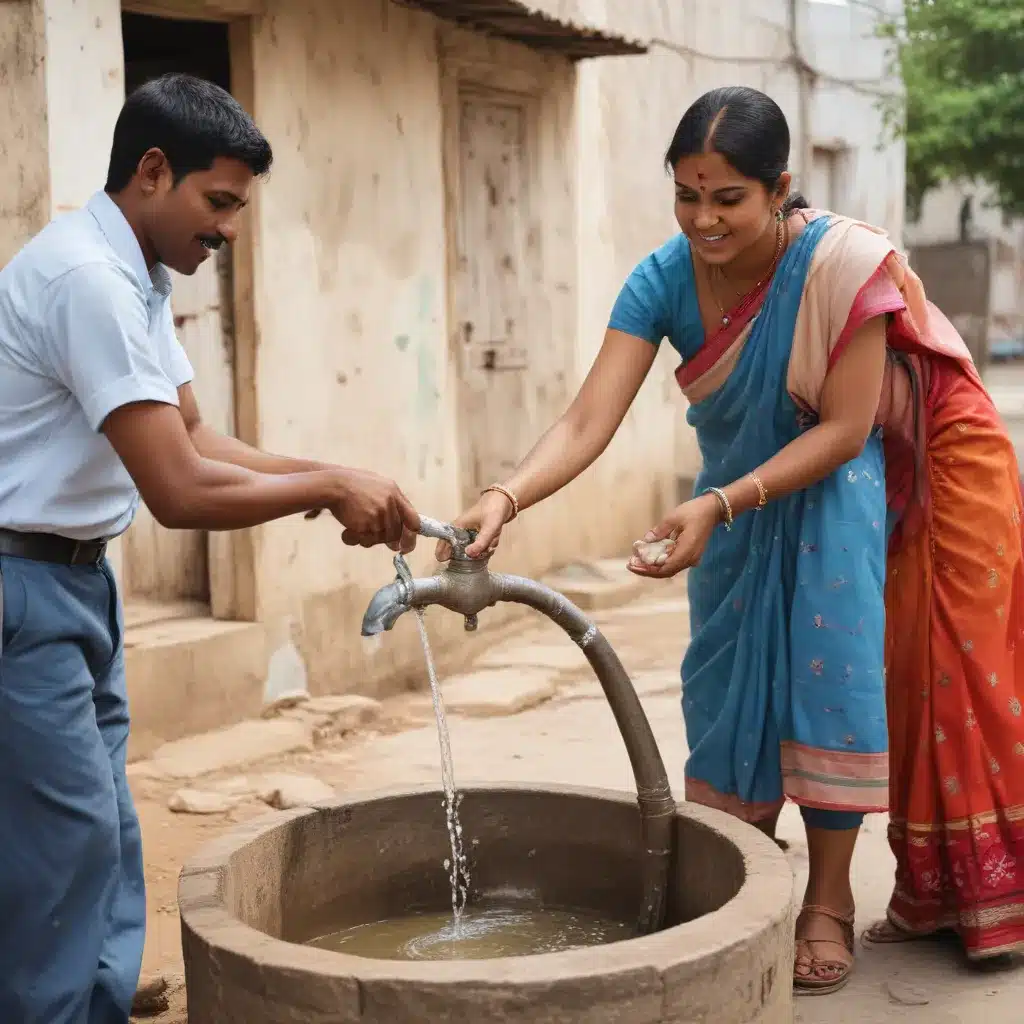
The Importance of Decentralized WASH Governance
Providing universal access to safe, affordable, and reliable water, sanitation, and hygiene (WASH) services is a core development priority for India. Over the past decade, the country has made significant strides in expanding WASH coverage, with the Swachh Bharat Mission leading to remarkable progress in rural sanitation. However, coverage and service quality gaps persist, particularly in urban and peri-urban areas.
Ensuring equitable WASH service delivery requires a strong focus on decentralized governance and the empowerment of local governments. The 74th Constitutional Amendment Act of 1992 had envisioned a pivotal role for Urban Local Bodies (ULBs) in planning, implementing, and managing WASH services. Yet, in practice, many ULBs continue to face capacity and resource constraints that undermine their ability to fulfill this mandate effectively.
Strengthening the role of local governments is crucial for several reasons:
-
Proximity to Communities: Local governments are best positioned to understand the unique WASH needs and challenges of their communities, and to tailor service delivery approaches accordingly.
-
Responsiveness and Accountability: When WASH services are managed at the local level, communities can more easily hold service providers accountable and influence decision-making.
-
Sustainable Operations and Maintenance: Local governments are essential for ensuring the long-term sustainability of WASH infrastructure through dedicated operations and maintenance (O&M) budgets and systems.
-
Leveraging Diverse Financing Sources: ULBs can explore innovative financing mechanisms, such as public-private partnerships and blended finance, to supplement limited public resources for WASH investments.
-
Integrated Service Delivery: Local governments can better coordinate WASH services with other urban services like solid waste management, drainage, and urban planning for more holistic and efficient service delivery.
Challenges Facing Urban Local Bodies in Hyderabad
The Greater Hyderabad Municipal Corporation (GHMC) is the primary ULB responsible for WASH service delivery in Hyderabad, India’s fourth-largest city. Despite recent improvements, the GHMC continues to grapple with several challenges that undermine its ability to ensure equitable and sustainable WASH services:
1. Capacity and Resource Constraints
– The GHMC faces significant gaps in technical, financial, and human resources to effectively plan, implement, and manage WASH services.
– Outdated infrastructure, limited O&M budgets, and fragmented service delivery systems compromise the quality and reliability of water supply and sanitation services.
2. Fragmented Institutional Responsibilities
– WASH service delivery in Hyderabad involves multiple state-level agencies and parastatals, leading to unclear mandates, poor coordination, and suboptimal utilization of resources.
– The lack of a unified, city-level WASH authority hinders integrated planning and decision-making.
3. Informal Settlement Challenges
– Rapidly growing informal settlements in Hyderabad lack access to basic WASH services, posing significant public health and environmental risks.
– Integrating informal settlements into the formal service delivery system remains a complex challenge.
4. Weak Community Engagement
– Limited community participation in WASH planning and management processes undermines the responsiveness and accountability of service providers.
– Inadequate behavior change communication and hygiene promotion efforts constrain the adoption of safe WASH practices.
5. Climate Change and Disaster Risks
– Hyderabad is vulnerable to the impacts of climate change, including water scarcity, flooding, and the contamination of water sources.
– WASH infrastructure and service delivery systems are not adequately designed to withstand these mounting climate-related risks.
Strategies for Strengthening the Role of Local Governments
To address these challenges and enhance the capacity of the GHMC to ensure equitable and sustainable WASH service delivery, a comprehensive, multi-pronged approach is required. Key strategies include:
1. Institutional Strengthening and Capacity Building
- Establish a dedicated, city-level WASH authority to consolidate service delivery mandates and enable integrated planning and management.
- Enhance the technical, financial, and human resource capacities of the GHMC through sustained capacity-building initiatives.
- Streamline business processes, strengthen financial management systems, and improve data-driven decision-making.
2. Sustainable Financing and Investment
- Diversify WASH financing sources by leveraging innovative mechanisms like municipal bonds, public-private partnerships, and blended finance.
- Strengthen the GHMC’s own-source revenue generation through improved tax administration, user charges, and cost-recovery measures.
- Prioritize WASH investments based on comprehensive asset management and master planning.
3. Inclusive Service Delivery
- Develop targeted strategies to extend affordable and equitable WASH services to informal settlements, leveraging community-driven approaches.
- Strengthen public-private-community partnerships to enhance the reach and quality of services, especially in underserved areas.
- Integrate WASH service delivery with other urban services for holistic and efficient urban planning and management.
4. Community Engagement and Accountability
- Institutionalize mechanisms for substantive community participation in WASH planning, implementation, and monitoring.
- Enhance transparency and improve grievance redressal systems to strengthen the accountability of service providers.
- Scale up behavior change communication and hygiene promotion programs to drive sustainable WASH practices.
5. Climate and Disaster Resilience
- Incorporate climate change adaptation and disaster risk reduction measures in WASH infrastructure planning and design.
- Invest in nature-based solutions and green infrastructure to enhance the resilience of WASH systems.
- Strengthen early warning systems and emergency response mechanisms to mitigate the impacts of climate-related shocks and disasters.
Conclusion: The Path Forward
Realizing the vision of equitable and sustainable WASH services in Hyderabad requires a fundamental shift in the role and capacities of the GHMC. By embracing a decentralized, community-centric, and climate-resilient approach to WASH governance, the city can unlock new opportunities to address persistent service gaps and ensure the well-being of all its residents.
Through strategic investments, institutional reforms, and innovative partnerships, the GHMC can emerge as a model of inclusive and sustainable WASH service delivery, inspiring other cities across India to follow suit. Strengthening the role of local governments is not just a technical imperative, but a vital step towards achieving the Sustainable Development Goals and fulfilling the constitutional mandate of empowered urban local bodies.

